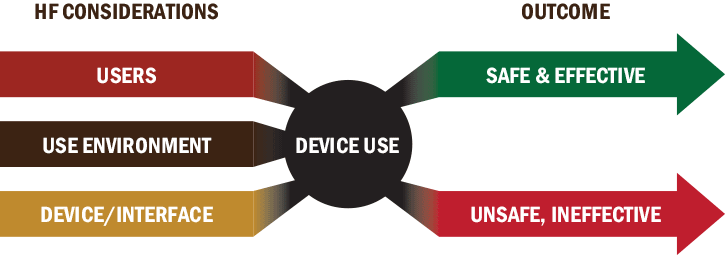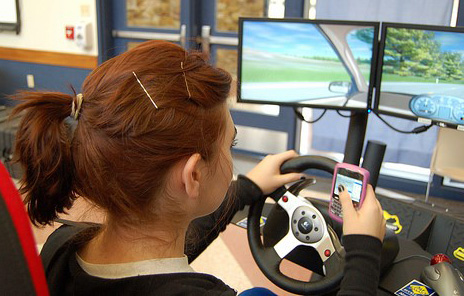HUMAN FACTORS
What is Human Factors?
"Human Factors is concerned with the application of what we know about people, their abilities, characteristics, and limitations to the design of equipment they use, environments in which they function, and jobs they perform."
–Human Factors and Ergonomic Society

Overview

Technological advances can increase productivity and safety for individuals and society; however, there is no guarantee that they will do so. Technology is just one component of a complex socio-technical system, and only an integrated understanding of how humans and systems interact can ensure that advances in technology will translate to advances in safety and productivity. The Human Factors certificate will better prepare students for future careers in both industry and academics by focusing on interactions between humans and systems. The greater Salt Lake City area is currently experiencing a transformation into a high-tech area, which in turn is attracting many companies for which Human Factors is an important area of concern.
This certificate allows students to focus their studies in the field of Human Factors through a curated selection of courses and an independent research project. The certificate complements many existing fields of study and students can apply to complete the certificate with any major, including (but not limited to):
- Psychology
- Engineering
- Computer science
- Pre-medicine
- Nursing
- Design
CERTIFICATE REQUIREMENTS & COMPLETION CHECKLIST
Learning Outcomes
- Goal 1: Broad knowledge of the science of human factors and ergonomics that provides a foundation for both career development and lifelong learning.
- Goal 2: An ability to design, conduct, analyze, and interpret human factors experiments and their data for the purpose of addressing human factors and ergonomics problems.
- Goal 3: Experience in designing or re-designing a system, component, or process to meet accepted human factors and ergonomics standards within realistic constraints.
- Goal 4: Effective communication skills for teamwork, collaboration, and dissemination of results.
- Goal 5: An understanding of global, economic, environmental, and societal contexts from which human factors and ergonomics problems, as well as their solutions, arise.
Where Are They Now
Students in our department have completed a number of diverse and insightful projects
as part of the Human Factors Certificate. The following are some of the projects that
highlight their work.

Kristina Radley, Psychology BS, 2020
About Me:
I am improving safety, efficiency, and usability of IV and enteral pumps as a Human Factors Engineer at Moog Medical. I go to work every day knowing that I am improving someone's life and making a difference.

Michael Azbill, Psychology BS, 2020
About Me:
I am currently working in user experience (UX) & user interface (UI) design at Landvoice which produces software for realtors.
Project: Vastness and Scene Perception

Cailee Markosian, Psychology BS, 2018
About Me:
I work in marketing at Thumbtack, building compelling and visionary narratives about our product in order to take them to market in impactful ways.

Jeremy Donaldson, Psychology BS, 2018
Project: Examining Effective Navigational Learning Strategies for the Visually Impaired
